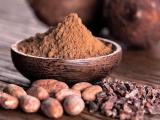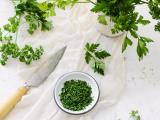In Russia, an interesting thesis emerged: why does the Pepsi generation suffer from diseases their parents never knew? What lies behind this?
In the middle of the last century, the American Heart Association published a study attributing the occurrence of atherosclerosis and obesity to fats. This theory gave rise to fat-free products with high carbohydrate content. The food industry gladly supported this finding because it meant more processed food. However, since people were still hungry, sales increased, leading to profit.
Today, we know that things are more complex. Only simple fats are harmful, while complex ones are not. Furthermore, fats are now even desirable and healthy due to the lack of fats. Diseases that were detected half a century ago are now manageable and not as severe as modern ones. That's why, as a society, we are returning to fats.
Difference between Keto and LCHF
Ketosis is the process when the body lacks enough carbohydrates to use them for energy. Instead of glucose as the main fuel source, metabolism consumes fats and produces ketones in the liver, which serve as a source of energy for the body.
In principle, both dietary approaches are based on reducing carbohydrate intake, but there are still differences. LCHF is based on smaller doses but allows for indulgent days in between. The keto diet advocates for consuming more proteins. With LCHF, you achieve a state of ketosis only at certain times, such as intense workouts, fasting, or even during sleep, as carbohydrate intake is too high to maintain a ketogenic diet.
Strictness in the intake of a certain percentage of micronutrients represents a key difference between the two diets. Therefore, the keto diet is more than just being careful about what you eat (LCHF); it's about a metabolic state that can be measured.
Reaching a state of ketosis isn't easy, as it requires drastically reducing carbohydrate intake, and the entire process usually takes 2 to 4 days, sometimes even more than a week. More and more clinics around the world (especially in the East) are implementing therapeutic ketosis to treat epilepsy, autism, Parkinson's and Alzheimer's disease, schizophrenia, panic attacks, multiple sclerosis, infertility, and of course, obesity. Russian physician Vasilij Generalov is particularly interesting, as he is currently the only one practicing metabolic therapy for oncology. He believes that the keto diet can halt the progression of cancerous tumors. Official medicine does not recognize Generalov's practices, but at least Russian medicine does not hinder him. The results speak for themselves.
The controversy surrounding Generalov's book, The Keto Diet. You Can Eat Fats!, has stirred up controversy worldwide.
In potatoes, grains, soy, legumes, and of course, in industrially processed foods, there are so-called hard carbohydrates, which trigger autoimmune processes in the body. Among the most dangerous are gluten (most abundant in wheat) and casein (milk), which are considered the biggest autoimmune provocateurs. Both should be immediately excluded from the diet.
All hormones essential for the body's functioning are synthesized from cholesterol obtained from food. Without cholesterol, hormonal imbalance threatens us, which can be very dangerous.
All plant foods contain lectins, which are highly toxic, especially when unripe. Plants protect themselves with lectins, yet we eat them without hesitation. All plants are toxic because they disturb the stomach and entire digestion. Generalov has caused worldwide outrage with his statement "vegetarianism is the path to oncology."
What should we eat, then?
Generalov believes that everyone should eliminate from their diet things that bother them. Fortunately, we are all so different that not the same things harm us, and the same things do not benefit us either. Each person must find a diet that suits them. That's why he has compiled these recommendations:
Foods we should eat:
- Animal fats: subcutaneous fat, lard, any fatty meat, offal, fatty fish, eggs.
- Meat broths.
- High-fat dairy products: ghee, sour cream, cottage cheese, mascarpone, aged cheese, cream.
- Plant oils: coconut, olive, mustard, and avocado oil.
- Non-starchy vegetables: cucumbers, squash, zucchini, leeks, asparagus, iceberg lettuce, spinach.
- Low-carb vegetables and mushrooms: cauliflower, broccoli, Brussels sprouts, squash, eggplant, bell pepper, tomato, celery, onion, mushrooms.
- Nuts, seeds, berries.
Foods we must not eat:
- Flour products and pastries.
- Sugar, all sweets and desserts.
- Grains and cereals.
- Sausages and processed meats.
- Starchy vegetables, fruits, and dried fruits.
- Low-fat dairy products and processed cheeses.
- Sweet alcoholic and non-alcoholic beverages.
- Beans and soy.
- Prepared sauces and mayonnaises.









 Would you like to be informed about news on the website?
Would you like to be informed about news on the website?

